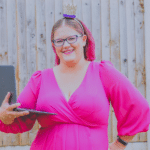From magazine covers to social media feeds, women are bombarded with images of “perfect” bodies. These unattainable beauty standards, endlessly reinforced by the media, beauty industry, and diet culture, chip away at women’s self-esteem, fueling a sense of never being quite good enough. It’s time to break down the harmful impact of body image pressure and how women can start reclaiming a healthier relationship with their bodies.
The message is insidious: thinner, younger, smoother, perkier. Photoshopped images of impossibly flawless women create an impossible goalpost for real women to measure themselves against. This relentless focus on women’s appearance sends the message that their value lies primarily in how they look, not in their intelligence, character, or accomplishments.
“Growing up as a girl means being constantly evaluated by criteria that have nothing to do with who you are as a person,” observes a social commentator specializing in female empowerment. “This constant scrutiny of women’s bodies is emotionally harmful and profoundly disempowering.”
The Beauty Industry Profits from Insecurity
Let’s be brutally honest: the beauty and diet industries don’t exist to make you feel beautiful and confident. These multi-billion dollar industries operate on a very simple business model – exploit insecurities, sell “solutions.” Ever noticed how those anti-cellulite creams never seem to completely banish your cellulite? How the next hyped-up miracle diet leaves you feeling frustrated and deprived? It’s not a coincidence; it’s by design.
The marketing messages aimed at women are relentless and insidious. Ads bombard you with subtly manipulated “before” photos depicting ordinary women as somehow flawed and in desperate need of their product. “Solutions” promise everything from younger-looking skin to a slimmer waistline, playing on deeply ingrained anxieties about aging and body size. The beauty industry, in particular, profits from making women feel like they’ll never be good enough without the latest product or procedure.
It’s crucial to remember, these industries don’t sell actual results; they sell hope in a jar, a bottle, or a 30-day program. Their target market isn’t women happy and at peace with their bodies. It’s women in a state of perpetual dissatisfaction, always desperate for the next quick fix and eternally convinced they’re just one product away from achieving the ideal pushed by the beauty industry. “The goal is not to eliminate your wrinkles or give you a thigh gap,” observes a media studies expert. “It’s to keep you chronically insecure enough to become a repeat customer.”
While harmful beauty ideals aren’t new, social media adds fuel to the fire. Scrolling through curated feeds of perfectly posed influencers and meticulously filtered selfies can make it seem like everyone else has a “better” body. This constant comparison takes a significant toll on self-esteem, particularly for younger women who are still developing a sense of self.
The pressure to conform to unrealistic body ideals isn’t just about feeling bad about yourself at the beach. It has serious consequences for women’s mental health. Studies link negative body image to increased risk of depression, anxiety, disordered eating, and lower self-esteem. When women are constantly scrutinizing their bodies, it takes a toll on their overall well-being and ability to live a joyful, full life.
Rejecting Toxic Beauty Standards
The first step to combating negative body image is to recognize that the “perfect” bodies sold by the media aren’t real. Photoshop, filters, strategic lighting, and even cosmetic procedures create an illusion. Choosing to unfollow social media accounts that trigger feelings of inadequacy and filling your feed with diverse and body-positive content is one powerful act of rebellion.
The body positivity movement seeks to challenge harmful norms and celebrate bodies of all shapes, sizes, colors, ages, and abilities. Appreciating the amazing things your body can do, from dancing to hugging a loved one, to experiencing the simple pleasure of eating delicious food, shifts the focus from appearance to functionality and experience.
“Real bodies change, they have curves, they have scars, they get older – and that’s okay,” says a body positivity advocate. “The goal is learning to appreciate your body for what it is, not relentlessly trying to mold it into some unattainable ideal.”
If you’re struggling with body image issues, know you’re not alone. Seeking support from a therapist specializing in body image and disordered eating can provide crucial tools for healing and self-acceptance. Surrounding yourself with friends and family who uplift you and focus on your positive qualities, not your appearance, is essential.
We need to redefine what we consider beautiful. Strength, kindness, resilience, creativity – these are the qualities worth celebrating. The goal isn’t necessarily to always love every inch of your body, but rather to reach a place of neutrality and acceptance.









